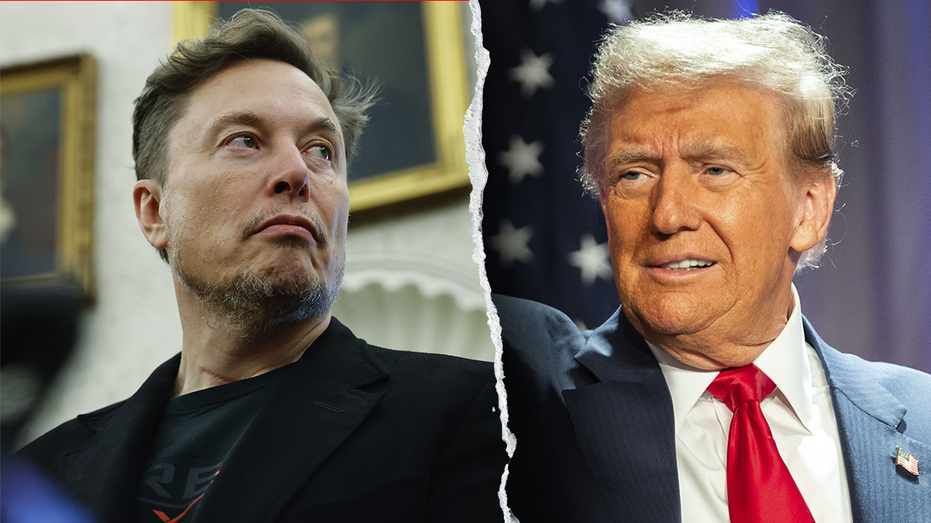Trump's Senate Allies Dismiss Elon Musk's Calls to 'Kill the Bill' as Not a Major Factor
Elon Musk urges legislators to oppose Republican spending bill over deficit fears amid Senate debate on $4 trillion package.

Elon Musk continued his pointed criticism of President Donald Trump’s sweeping legislative package on Wednesday, as the debate over the so-called "one big, beautiful bill" entered a new chapter in the Senate. While House Republicans found themselves on edge after Musk’s barrage of posts calling for the bill’s demise, Senate Republicans embarked on a process to refine and reshape the massive reconciliation package, signaling their intention to assert their own priorities.
Musk’s vocal opposition—fueled by concerns over government waste and soaring national debt, which now exceeds $36 trillion—echoed his earlier interventions in December, when his advice contributed to changes in a prior GOP funding bill. Yet, his latest campaign may have a diminished impact this time around. Having just completed a brief stint as a special government employee charged with rooting out inefficiency, Musk now faces a Senate determined to leave its imprint, rather than simply rubber-stamping proposals from the House or outside influencers.
“Call your Senator, Call your Congressman,” Musk urged his followers on X (formerly Twitter). “Bankrupting America is NOT ok! KILL the BILL.” Despite the frenzy among some House Republicans, several senators appeared unfazed. “If Elon was going to give me advice on how to get to the moon, I’d listen,” quipped Sen. Kevin Cramer, R-N.D. “But… he doesn’t govern, you know, and so, to be honest, Elon, he’s not that big a factor.”
Talk of Musk’s influence surfaced during a closed-door strategy session among Senate Republican committee chairs, who outlined plans to tweak key sections of the sprawling package. Later, President Trump met privately with members of the Senate Finance Committee to shore up support, reportedly brushing aside any worry over Musk’s outcry. Sen. Roger Marshall, R-Kan., described the president’s attitude as almost jovial, noting, “It was very much in jest and laughing, and I think he said something positive about Elon, appreciating what he did for the country.”
As Congress moves forward, Republicans are aiming to use budget reconciliation—a special process that bypasses the 60-vote filibuster threshold in the Senate—to push through the legislation with a simple majority. Still, they will need near-unanimous support among their own ranks, as even a few holdouts could jeopardize the entire deal. Inside the party, disputes persist over the size and scope of spending cuts; some lawmakers want reductions as steep as $2 trillion or a return to pre-pandemic levels, while others are pushing back against specific provisions affecting Medicaid and green energy tax credits.
Among the most controversial targets are electric vehicle tax credits, a potential trigger for Musk’s opposition, given their direct relevance to his business empire. “Any senator with a brain sees Elon’s comments for what they are, a CEO worried about losing business,” remarked one Republican aide, highlighting lingering skepticism about Musk’s motives. The current House-backed proposal aims for $1.5 trillion in spending cuts over ten years, intended to balance the anticipated $4 trillion cost of extending Trump’s signature tax cuts.
Though some senators, like Mike Lee of Utah, echoed Musk’s call for deeper fiscal restraint, independent budget analysts estimate the package may fall short. The Congressional Budget Office projects only $1.3 trillion in cuts, offset by over $3.7 trillion in lost revenue, ultimately adding an estimated $2.4 trillion to the federal deficit.
Even lawmakers who have previously aligned with Musk’s fiscal hawkishness expressed unease. Sen. Rand Paul, R-Ky., said he shared Musk’s skepticism, particularly over plans to lift the nation’s debt ceiling by $5 trillion. Paul suggested any path forward should separate the debt ceiling vote from broader spending measures and incorporate more aggressive cuts. “I would be very open to supporting the bill if we had more spending cuts and the debt ceiling was a separate vote,” he added.
With the fate of the “big, beautiful bill” hanging in the balance, the coming days in the Senate promise intense negotiation as lawmakers weigh the political risks and economic consequences of their next steps. For now, the voices of dissent—from tech titans to fiscal hardliners—ensure the legislative battle is far from over.




